
Background information
The microcomputer: success thanks to hobbyists and enthusiasts
by Kevin Hofer
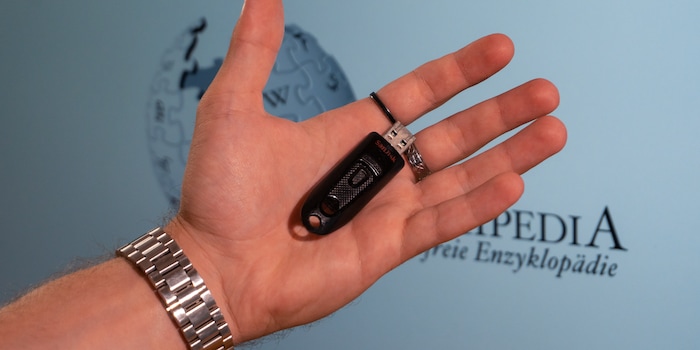
Wikipedia is probably the most comprehensive knowledge database in the history of humankind. It’s just a shame when you can’t access it because your internet connection isn’t cooperating, eh? But it doesn’t have to be like this. You can download Wikipedia – and it takes up much less disk space than you’d expect.
We live in the age of information. Every discussion at the bar and every pub quiz question can be resolved with a Google search – at least theoretically. If you’re writing a paper or just curious about a topic, chances are you’ll also turn to the internet.
Wikipedia, the free encyclopedia, has been the most sought-out source of knowledge and facts for years. With around 6.8 million articles, the English version ranks first in size. The German edition, on the other hand, counts over 2.9 million articles, making it the third-largest language version. According to Wikipedia, it’s the fourth most-visited website in Switzerland. In Austria, Wikipedia comes in sixth place, while in Germany it’s in seventh.
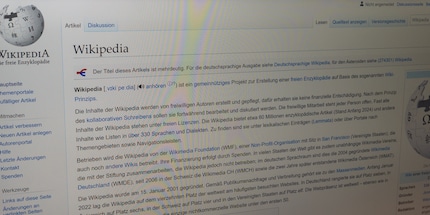
It’s certainly a fascinating thought that we have humankind’s knowledge right at our fingertips. But what if you need to look something up and have no internet connection? Here’s how you can carry the free encyclopedia with you without having to rely on the World Wide Web. It’s super easy.
There are plenty of reasons why you might want to store the largest database of knowledge locally. For one, should there ever be a large-scale power or internet outage (knock on wood!), a copy of Wikipedia could prove quite valuable. Perhaps you’re abroad often and don’t want to waste your mobile data looking up every question that pops into your head.
Or maybe you like to go hiking in areas with poor network coverage and want to have access to a pool of important information at all times. You actually don’t even need a computer for your local Wikipedia.
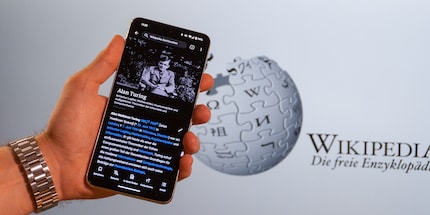
Depending on what your needs are, a local copy of Wikipedia can take up between 4 and 40 gigabytes. You read that right – gigabytes. Not terabytes. And not even a hundred of them. In other words, you may even be able to download your personal Wikipedia directly onto your phone or onto a conventional USB stick to always have it with you.
In theory, you could download the collection of all Wikipedia articles directly from Wikipedia. These so-called dumps are updated every two to four weeks. Each dump is just over 6 gigabytes in size and contains all the texts from the English-language Wikipedia, but no images or media files.
But there’s a much easier option, which can take up even less space: offline readers. Here’s a selection of offline readers. They all work in similar ways, compressing, downloading and displaying the files for you. It’s child’s play!
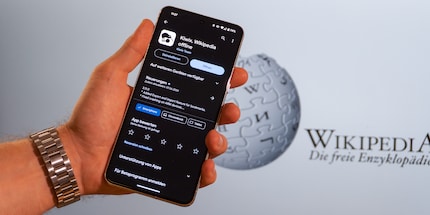
Kiwix, for example, is available as an app for Windows, Mac, Linux, Android and Apple. All you need to do is download and install Kiwix; the rest of the process is self-explanatory. You can then download different versions of Wikipedia directly from the app.
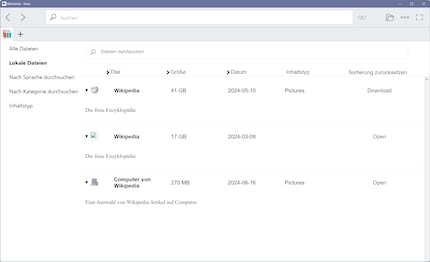
For German-language Wikipedia, the smallest version is less than 4 gigabytes in size and only contains the introductions to all articles. If you want the entire content without images, the file is roughly 18 gigabytes in size. With all the images, the entire compressed version of Wikipedia takes up just over 41 gigabytes. Alternatively, there are also dumps sorted by subject matter, such as «computers» or «history». These are only a few hundred megabytes in size.
Now all you have to do is save the whole thing onto a USB stick, et voilà – your omniscient flash drive is ready!
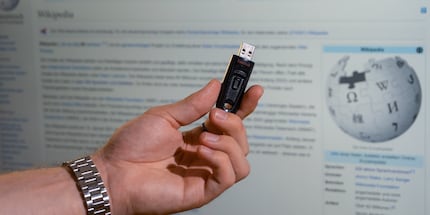
The whole thing works almost exactly the same on a smartphone. Install the app, select your desired version and hit download. Admittedly, the Kiwix app isn’t exactly what I’d call pretty. That’s why, if you’re only looking to download select articles, I’d recommend sticking to the official Wikipedia app.
Of course, these are highly condensed versions of the free encyclopedia. It’s difficult to say how large the entirety of Wikipedia actually is, especially as it changes practically every day.
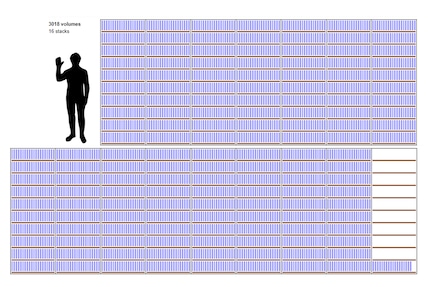
In May 2024, the complete history dump with all XML files of the English-language Wikipedia totalled 28,701,652,484,981 bytes. That’s a whopping over 28 terabytes of raw text. Of course, this also includes user profiles, all revisions to articles and much more that you don’t actually need.
Add in all pictures and media, and this figure becomes even more absurd. According to Wikimedia Commons, the uncompressed media files total over 540 terabytes. Good luck getting that onto your USB stick!
I've been fascinated by all things keys, displays and speakers for basically as long as I can remember. As a journalist specialising in technology and society, I strive to create order in the jungle of tech jargon and confusing spec sheets.
Interesting facts about products, behind-the-scenes looks at manufacturers and deep-dives on interesting people.
Show all